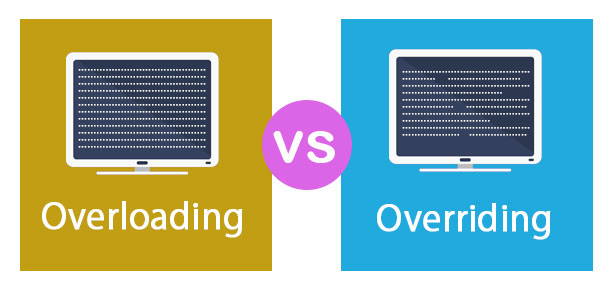Java comprises enormous worthy concepts. Both overriding and overloading are the most popular and frequently used concepts of Java. They differ from each other, and hence the programmers must have entire knowledge about these. Most often, Java novice programmers seem confused between both these.
Overriding VS Overloading
Overloading is a term used to describe two or multiple methods that have had the same name in the same class. However, the parameters of these are different. Overriding is a term that describes the method signature in which parameters and names are the same in child class and superclass. There are some significant facts about overloading and overriding that make the concept even more clearer. The programmers can make a better selection when they get to know about these facts. All the things come up with pros and cons. The same is the case with overloading and overriding.

Fact 1
The polymorphism works merely for the overriding and has nothing to do with the overloading. Hence, it cannot apply to overloading. But, if you are using the overriding, then you can apply polymorphism with ease. It means to have more than one form of shape. Hence, multiple forms grant more levels of success to it, and hence people like to rely on it.
Fact 2
One is the compiled time concept between both of these, while the other is the run-time concept. The one which has the characteristic of the compile-time concept is overloading. While the one having a run-time concept is overriding.
Fact 3
The overridden method is the use that utilizes the feature of run-time. Actual object types are used in the run time. Hence, it does not use any of the reference variable types at all. However, the scenario is the opposite with overloading. In the overloading method, there is no run-time concept but the compile-time concept only.
Fact 4 : Difference between overloading and overriding
As an overriding associate with run time-binding, it is the one that is dynamic. However, overloading is the one that is found static. As per the nature of overloading, it functions within a class. However, overriding exists in the classes that comprise inheritance relationships.
Fact 5: Difference between overloading and overriding
Function overriding refers to the process of redefining the function. When any function redefine efficiently in the derived class, it is papular to be the function overriding. The derived class can override any base-class member function. It is possible through the supply of a new version. However, when the signature is found to be different, then, in this case, the function would be known as the overloading one rather than the overriding.
Fact 6
In the case of method overriding, the covariant and the same return type need to be the same. The parameter can change for the overloading method, but the return type would be the same one. There cannot be any change to the return type. Else the function would not work at all.
Also read: How to delete backup files in windows 10







